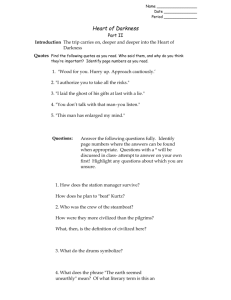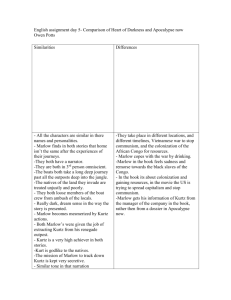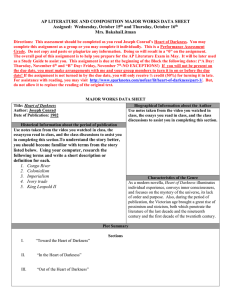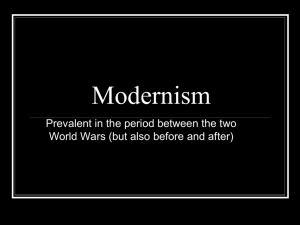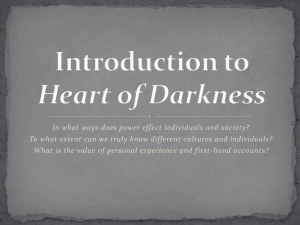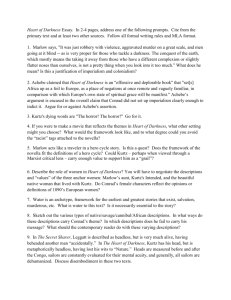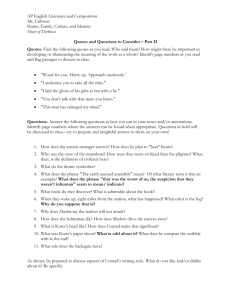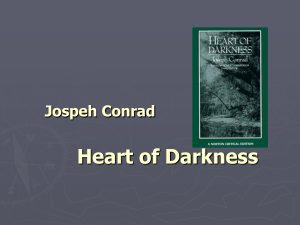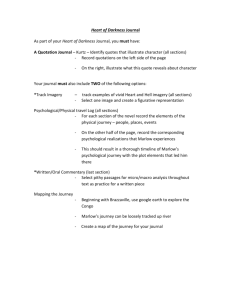Psychological Symbolism in Heart of Darkness
advertisement
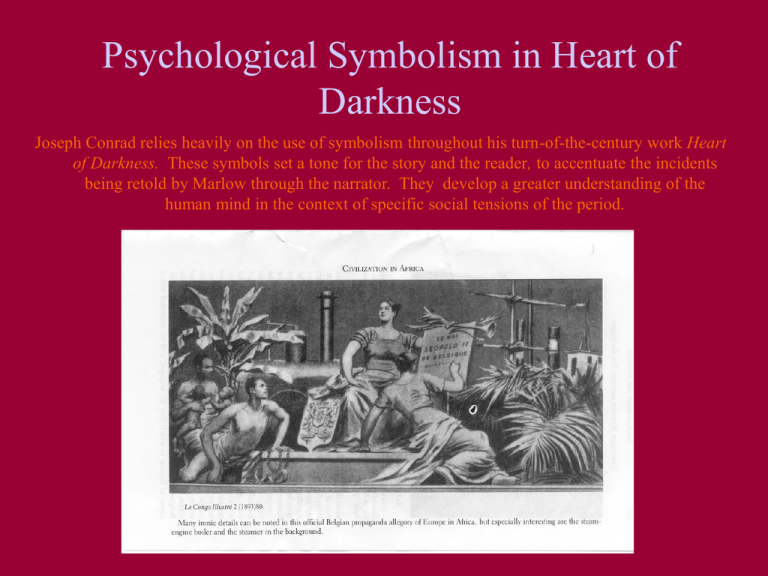
Psychological Symbolism in Heart of Darkness Joseph Conrad relies heavily on the use of symbolism throughout his turn-of-the-century work Heart of Darkness. These symbols set a tone for the story and the reader, to accentuate the incidents being retold by Marlow through the narrator. They develop a greater understanding of the human mind in the context of specific social tensions of the period. Religion – Marlow refers to the company employees as”pilgrims,” implying that their journey is almost a religious one, with ivory being the god. – Refers to Brussels as the “sepulchral city” – Marlow is described as a “buddha” figure – Mr.. Kurtz is worshipped by the natives Water – Snake – normally symbolizes ablution, yet it transports the ship into the “heart of darkness” symbolizes evil and sin, and the river up which Marlow journeys (the Congo River) Contrasts Civilized/Uncivilized – The “civilized” Europeans are supposed to “civilize the brutish savages • who is least civil of the two? • Where did Kurtz fall? Dark/Light – dark symbolizes evil; light, good. The Jungle is dark. – The story is told at twilight; thus the ship and crew are literally going into the darkness. – Gloom covered London and “consumed” the sun. – Marlow blew out his candle at Kurtz’s death. – Women knit black wool – The woman emerges from the darkness in Kurtz’s painting (yet her light is “sinister,” and she remains blind) – The color of the native peoples. – Refers to the natives as “black shapes” GEOGRAPHY -The story is told on the outskirts of London (Gravesend) -The main events take place in an unnamed territory (supposedly the Congo) -The Congo River is described as “snakelike;”(12) in the conclusion, the Thames leads off into the unknown, the “heart of darkness.”(76) -Africa is the “dark continent:” Marlow recounts how it seemed to him to be “the center of the Earth.” “Going up that river was like travelling[sic] to the earliest beginnings of the world…” (35) -The map slowly became filled in with names and information HISTORY • Symbolism – discuss how the taming of Africa is parallel to the taming of England by the Romans centuries earlier (implicating both are, or were, for the best) – Invocation of the “great spirit of the past” – start from the same river as many other famous expeditions • some were successful (the Golden Hind), others were illfated (the Erebus and Terror) • Background – European race for land in Africa; heightened competition in all areas – King Leopold of Belgium was amassing rubber and ivory through his territories • claimed the intention of bringing “light” (religion and civilization) to the “savages” Joseph Conrad King Leopold II References • Conrad, Joseph. Heart of Darkness. New York: W.W. Norton & Company. 1988. • www.classicnote.com

